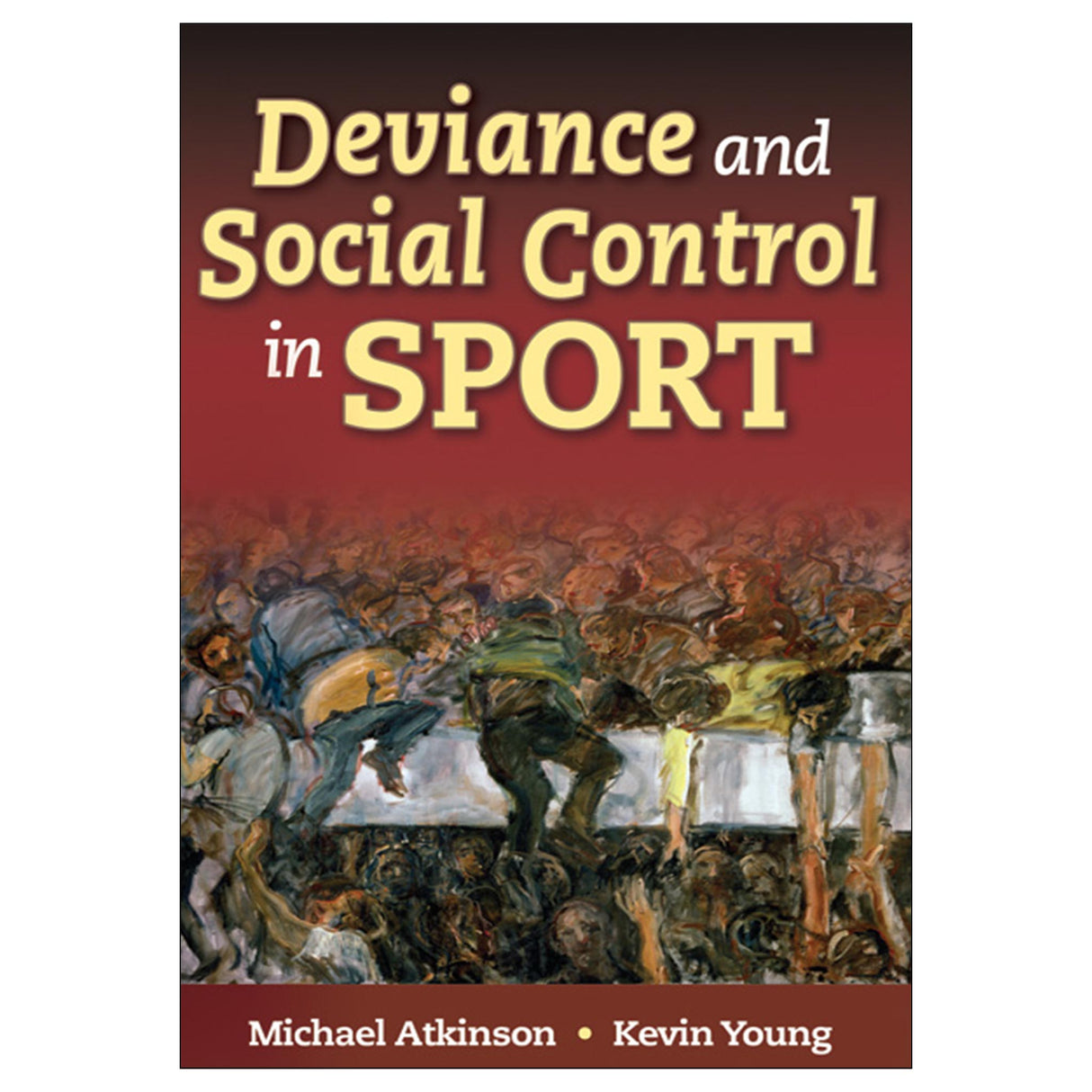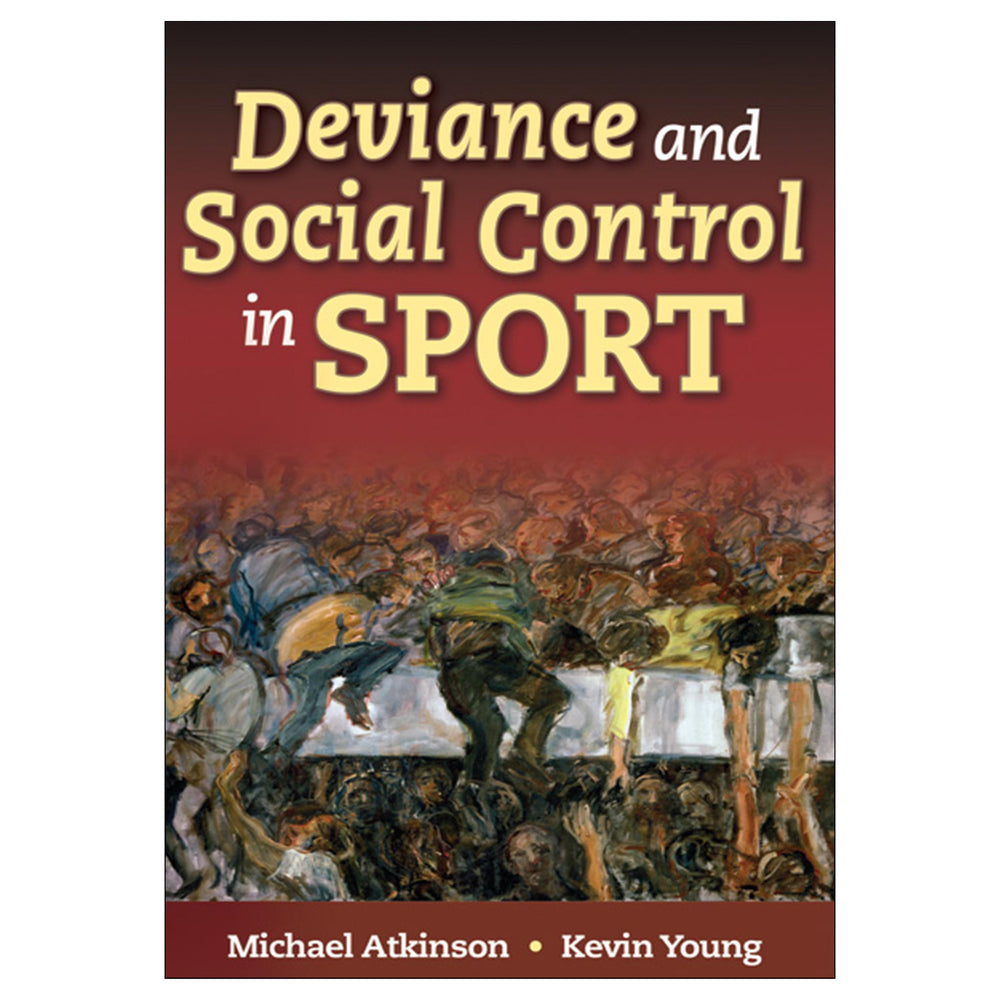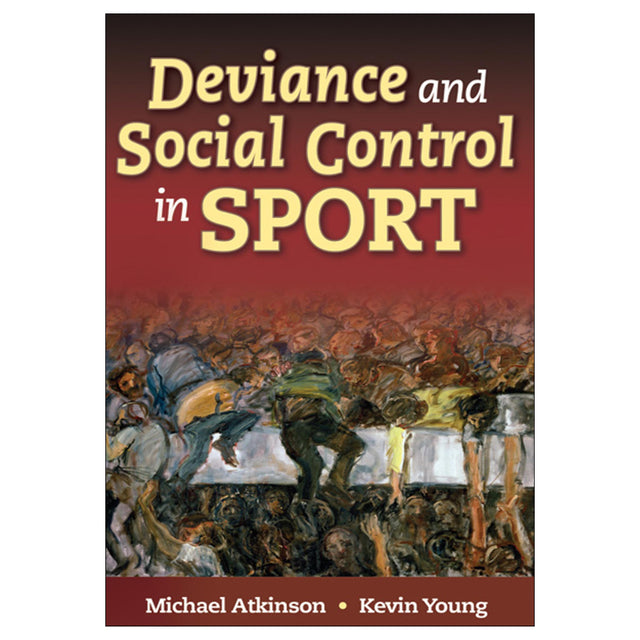Deviance and Social Control in Sport PDF
Author: Michael Atkinson, Kevin Young
$66.95 CAD
Access Duration: 10 Years
Deviance and Social Control in Sportis also available as an e-book. The e-book is available at a reduced price and allows readers to highlight and take notes throughout the text. When purchased through the Human Kinetics site, access to the e-book is immediately granted when the order is received.
The world of sport offers a deep—and often-overlooked—source for the study of deviance and its development and impact on society. Deviance and Social Control in Sport challenges preconceived understandings regarding the relationship of deviance and sport and offers a conceptual framework for future work in a variety of sociological subfields.
Drawing on their cutting-edge research in criminology and deviance in the discipline of sociology, Atkinson and Youngprovide a textured understanding of sport-related deviance through the application of various approaches to deviance in a sport context. Using extended case studies, the authors examine the subject of deviance through examples that are popular (fan violence, hockey enforcers, effect of the media), understudied (sport-related violence against animals, athletes as on-field victims of violence), or emerging (sport security, drugs and weight control, cybernetic athletes, extreme sports). This engaging presentation allows readers to fully understand the effects of sport deviance in society.
Deviance and Social Control in Sportexplains how forms of wanted and unwanted rule violation are produced by and mediated through social contexts in and around sport. As such, it explores
- • how deviance in sport is culturally constructed and ideologically framed in dynamic and interactive contexts;
- • the pathways certain athletes follow in becoming deviant and how they learn to associate those behaviors with their core identities; and
- • the social responses to deviant sporting behaviors, including the role of the media in disseminating images and messages about the behavior in question.
The text begins by presenting the theoretical background necessary for understanding deviance, followed by a look at deviance as an individual issue, how it is defined, and how authorities attempt to control it. The authors make the material accessible to readers by using case studies drawn from their own empirical research. The cases show how sociologists interpret and explain the actions of athletes as well as how deviance is layered by various levels of audience interpretation. Driven by a single theory or a range of integrated theoretical approaches, the case studies encourage readers to engage in differing perspectives about deviance in sport culture. The theories are further examined in each chapter through special elements called Theoretical Intersections, which highlight how the sociology of sport meets the sociology of deviance. Discussion questions and recommended readings synthesize the information and stimulate critical thinking and research to conclude each chapter.
By considering networks of social relationships and how they produce, define, and police rule violation and rule violators, Deviance and Social Control in Sport offers a nuanced and integrated explanation of sport deviance that accounts for the behaviors and practices of both individuals and teams. This interdisciplinary text challenges readers to explore the dimensions and analytic merit of a full spectrum of crime and deviancy theories, thus stimulating a broader discussion of rule breaking in sport.
PartI. Deviant Sport Conventions
Chapter 1.The Normal and the Pathological in Sport
The Pathological as Normal
Sport Deviance as Tolerable
Chapter 2. Sport, Deviancy Theory, and Sociological Research
Traditional Strands of Sport Deviancy Theory
How to Research Sport Deviance
Moving Backward and Forward With Theory
Part II. Deviant Sport Communities
Chapter 3. Youth Tribes in Sport
From Resistance Subcultures to Lifestyle Sports
Le Parkour
Theoretical Intersections
Chapter 4. Animal Violence in Sport
Animal Sports and Social Justice
Greyhound Racing
Changing Climates for Animal Sports
Theoretical Intersections
Part III. Deviant Athletic Bodies
Chapter 5. Body Pathologies in Sport
EPO in Professional Cycling
Slimming as Self-Violence
Technology and Disappearing Bodies
Theoretical Intersections
Chapter 6. Illness Narratives and Sport
Narratives of Wounded Athletes
Meeting Wounded Athletes
Comeback Narratives
Transgression Narratives
Exit Narratives
Theoretical Intersections
Part IV. Mediating Sport Deviance
Chapter 7. Criminal Violence in Sport
Rink Rage and Criminal Justice
Managing Hockey Deviance as a Total Institution
Ice Hockey and the Ironies of Social Control
Theoretical Intersections
Chapter 8. Terror and Security in Sport
Terrorism and the Olympic Games
Terrorism and the 2002 Salt Lake City Games
Security and Future Games
Theoretical Intersections
Chapter 9. Toward a Public Sociology of Sport Deviance
Victimological and Political-Economic Perspectives
Social Development Through Youth Sport
Sport for Reducing Social Problems





